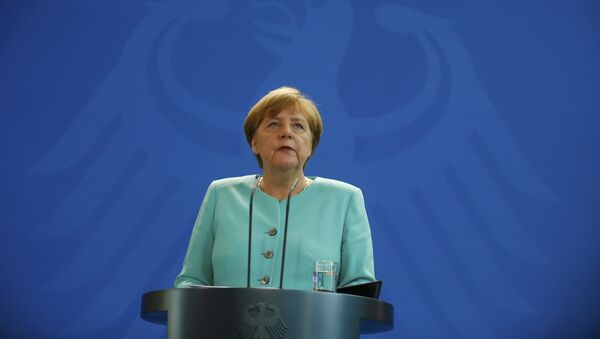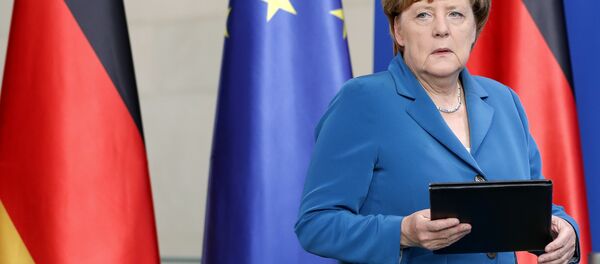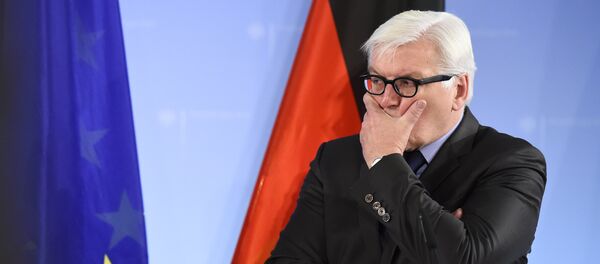While a number of Western officials are beginning to soften their stance on the sanctions against Moscow, hold-outs remain. As recently as August 19, Merkel was among the rank-and-file who argued in favor of continuing the roadblocks to global economic and cultural cooperation.
But on Monday, the German Chancellor appeared to reverse her position, saying she has "the very greatest interest in stopping sanctions."
"As soon as we progress in the Minsk agreements, we will loosen the sanctions," she told reporters, according to the International Business Times.
Currently serving her third term, Merkel has not made an official announcement on whether she intends to run for a fourth. Many German citizens are opposed to her remaining in power beyond 2017. Recent polling suggests that half of the population is against an ongoing Merkel administration.
Part of Merkel’s lack of popularity can be attributed to the migrant crisis, but her hardline stance against Russia has also played a role.
"Merkel is a supporter of the idea that it is Germany’s natural role to become the leader of Eastern Europe (especially of Poland and the Baltic states, and Ukraine), and to drive the economic development of these countries," said Alexei Fenenko, a senior researcher with the Russian Academy of Sciences’ Institute of International Security Studies.
Since the political elites in these countries are typically anti-Russian, Merkel "is turning Germany into the leader of an anti-Russian bloc."
A policy reversal could be an indication that the German leader has recognized the political and economic benefits of mending ties with Russia.
"Germany has always been important to Russia as a kind of bridge – a point of contact between Russia, the US and the rest of the West. If we completely lose Germany – we will lose an influential international mediator," Fenenko said.
"And that’s not even mentioning economic losses. Germany is important to us as a priority trade partner."
Relations between Russia and the West began to deteriorate in 2014 with the exacerbation of the political crisis in Ukraine, as well as Crimea’s decision to rejoin the Russian Federation. This led to the imposition of economic sanctions on Moscow by the United States and the European Union.





